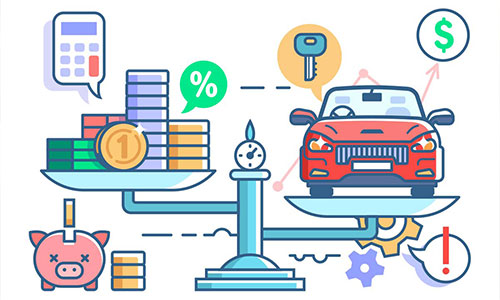
A guide to classic car tax exemption
Last updated December 15, 2022
There are plenty of reasons why you might choose to purchase a classic car. Perhaps you appreciate the beautiful designs of cars from bygone eras. You might also like the idea of owning a unique collectable – or relish the challenge of restoring one to its former glory.
Of course, the benefits of classic car ownership don’t end there. Did you know that many classic car owners don’t have to pay tax on their vehicles? It’s true; after the classic car tax exemption was introduced in 2017, the owners of cars over 40 years old became eligible to apply for tax exemption for their vehicles.
This is a rolling exemption, meaning drivers whose cars have not yet reached this milestone are able to apply for tax exemption as soon as their vehicle is over 40 years old.
In this guide, we will cover why this tax exemption is in place, which vehicles are eligible – and the exceptions to the rule. We’ll also explain how to apply for classic car tax exemption, the documents you’ll need – and how to renew your historic vehicle’s tax.
Value your car in under 30 seconds
Why are classic cars exempt from car tax?
Most classic cars in the UK are kept as second vehicles and therefore are not the driver’s primary mode of transportation. Whilst exemption might seem unfair on the face of it, most cars that have reached the required age for tax exemption aren’t used for everyday driving and are instead more of a collector’s item.
If classic cars were taxed in the same way that newer models are, it’s likely that the cost of classic car ownership would soar, leading to classic cars falling out of circulation, dramatically reducing the classic car market.
When does a car become tax exempt?
A car is eligible for tax exemption once it reaches around 40 years old, according to the date it was built. This is a rolling exemption; the qualifying build date for tax-exempt status changes on April 1st each year. For example, on April 1st 2022, the qualifying date changed to vehicles built before 1st January 1982 (or registered before January 8th, 1982), but this will change to include those built before 1st January 1983 on April 1st 2023 - and so on.
If you do not know the date your car was built but know that it was registered on or before the qualifying date, the same rule applies.
Are all cars over 40 years old tax exempt?
Cars, vans, motorcycles, and tricycles are all eligible for tax exemption at 40 years old, with just a few exceptions. Your vehicle is not eligible for tax exemption if it’s used commercially, for hire or for reward. This means that food vans, taxis, delivery vehicles and other vehicles used primarily for business purposes are not tax exempt.
Further information on tax exemptions for specialist and community vehicles can be found on the gov.uk website.
Is a 40-year-old vehicle automatically tax exempt?
You can declare your classic vehicle as tax exempt at your local Post Office. You’ll need to fill in section 7 of your V5C logbook and change the vehicle class from PLG (Private Light Goods) to Historic, then take the logbook with you to the Post Office, along with a valid MOT certificate – and a completed V10 tax request form. Your V5C, V10 and MOT certificate will be checked and, if completed correctly, your request for tax exemption will be processed.
For more information, visit the gov.uk website.
Applying for car tax exemption in Northern Ireland
The only difference between applying for car tax exemption in the UK and applying in Northern Ireland is that drivers in NI are also required to provide an insurance certificate or cover note alongside their V5C, V10 and MOT certificate.
How do I renew my historic vehicle’s tax?
You still need to tax your historic vehicle, though it won’t cost you anything. When it’s time to renew your historic vehicle’s tax, you’ll receive a V11 reminder from the DVLA and can tax your vehicle via the gov.uk website. You’ll just need your V11 and V5C to do this.
Frequently Asked Questions
You will be fined £80 if you are found to be driving a historic vehicle that has not been taxed or if you fail to tax your historic vehicle on time.
You will still receive a V11 document to tax your classic car and are required to complete this on time, even if your vehicle is tax-exempt. The purpose of this is to confirm with the DVLA that the car is roadworthy and still in use.
Generally speaking, the owner of any vehicle over the age of 40 years that is not used for commercial purposes (i.e. as a taxi, food van, delivery vehicle etc.) is eligible to apply for tax exemption. However, if you are still in doubt, contact the DVLA for confirmation.
If you do not know your vehicle’s build date, but it was registered over 40 years ago, you are eligible to apply for tax exemption.
Every April 1st, the threshold changes to include vehicles built before January 1st (or registered before 8th January) 40 years prior to the present year. For example, in April 2022, cars built before 1st January 1982 (or registered before 8th January) automatically became tax exempt.
The classic car tax exemption was introduced in 2017 and there are presently no plans to remove or change the current system.
As of 2022, the list of popular car models exempt from vehicle tax includes the Ford Fiesta XR2, Vauxhall Cavalier, Talbot Tagora, Audi Quattro, Renault Fuego and more. Already favoured for their retro looks and high-quality craftsmanship, their recent tax exemption could be yet another reason to sell your car and make the switch to a well-maintained classic.
To find out how much your current car could be worth, simply run its registration number through our free car valuation tool.
If you are unsure whether your car is currently taxed, simply enter your vehicle’s registration number into our free car tax check tool now. This will show you the vehicle’s current tax status and the next tax due date.





